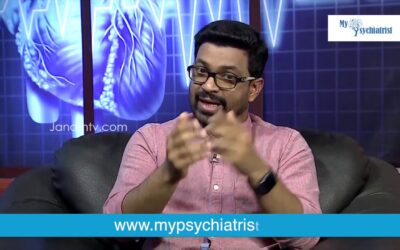Attention Deficit Hyperactivity Disorder
Attention deficit hyperactivity disorder as the name suggests, is a neurodevelopmental disorder characterized by lack of attention, difficulties in organization, restlessness and impulsivity. It starts during childhood and often persists into adulthood causing impairments in social, academic, and occupational functioning.
Due to the lack of attention and disorganization they are unable to focus on the task at hand, resulting in careless mistakes, not noticing smaller details, and difficulty in lengthy activities like attending lectures, reading etc. They appear to not listen when spoken to and teachers often complain that they are distracted, and their mind is elsewhere. They often fail to complete their work including schoolwork as they have difficulty in following lengthy instructions and are easily side-tracked, either by something in the surroundings or by their own thoughts. They tend to be disorganized, messy and have poor time management, often missing deadlines and losing their belongings. They may avoid work that needs focussed attention such as lengthy school work, preparing reports etc. They tend to be forgetful in running errands, keeping appointments etc.
Hyperactivity manifests as being fidgety and restless, not remaining seated in class or office, running about, and climbing inappropriately, and being unable to play quiet leisure activities. These symptoms are usually more prominent in children and come down as they reach adolescence and adulthood. Adults generally describe an inner sense of restlessness which may not be outwardly seen as hyperactivity.
Impulsivity entails difficulty in waiting, speaking out of turn, answering before the question is completed, or intruding into other people’s activities. They also tend to take important decisions without considering its long-term consequences, or hasty actions without forethought such as crossing the street without looking.
The severity of symptoms varies depending on the context (home vs office vs school). They may be less prominent when closely supervised (one to one instructions and interactions), under constant stimulation (television, video games etc.)
In addition, persons with ADHD have higher tendency to perform risky behaviours including using abusive drugs, and mood fluctuations, putting them at a higher risk of attempting suicides.
ADHD is a very common disorder and one out of 20 children are affected. Symptoms resolve as they grow older although in 2 to 3% it continues into adulthood. Boys are twice as commonly affected as girls. In girls, inattention and difficulties in organization are more common than hyperactivity.
A definitive cause for ADHD has not been found yet. However, certain factors have been found to increase is risk. These include very low birth weight (less than 1,500 grams) and exposure to toxins. ADHD is highly heritable and there is a nearly 50% chance that the child would develop ADHD if one of the parents have ADHD.
In order to make a diagnosis of ADHD, your doctor would need to observe the child after obtaining information about the child from you and other caregivers including school teachers. He may ask for additional psychological assessments to rule out intellectual or learning disability.
The management of ADHD includes both therapies to improve attention and concentration, parenting techniques to ensure that behavioural issues such as aggression and defiance are properly handled and improving organizational skills in the child. Medications are helpful in controlling symptoms to an extent and may be prescribed in addition to therapy in severe cases. Medications used include drugs such as methyl phenidate and atomoxetine. Based on your child’s symptoms and severity, your doctor will formulate a treatment plan to target specific issues using therapy as mainstay with or without additional medications.
Untreated ADHD can lead to poor performance at school and workplace and difficulties in relationships. They generally do not perform as is expected of their potential. They are more likely to develop antisocial and drug use habits during adolescence and later life and often tend to be misunderstood as lazy, irresponsible, and uncooperative. They have a greater incidence of learning disabilities and problems with mood fluctuations causing difficulties at school which affect later life also.
Early diagnosis and management are particularly important in ADHD to avoid performance issues and conduct problems in at the school level as these could result in long term consequences in the adult life also, affecting occupation and interpersonal relationships.
Janam TV Interview part 3
https://www.youtube.com/embed/MQ_ccsXwkbc All you want to know about Mental Illness



0 Comments